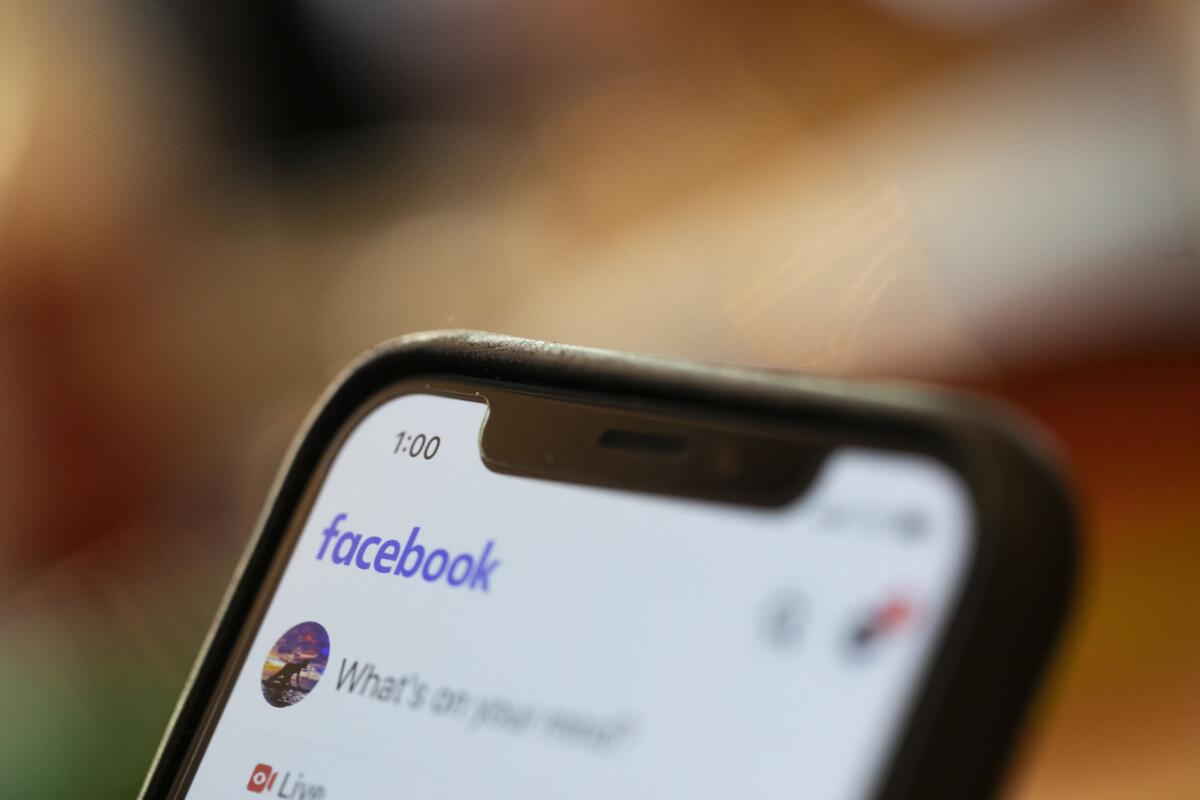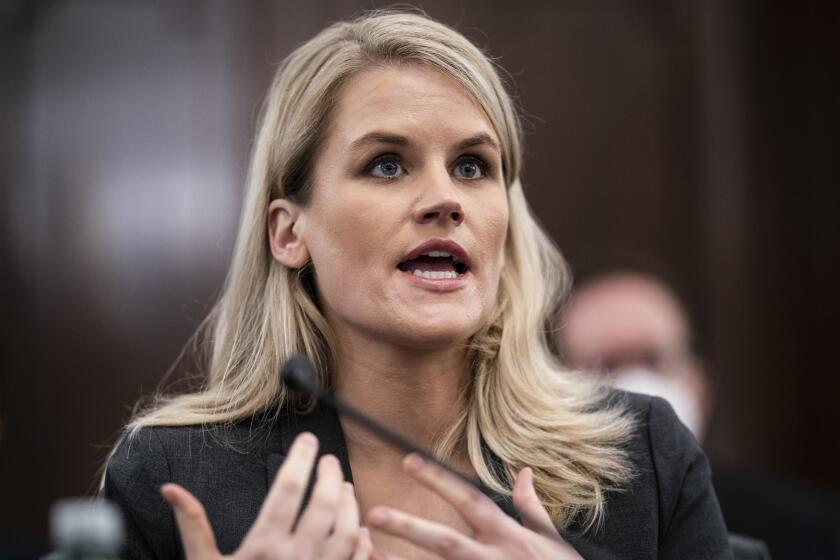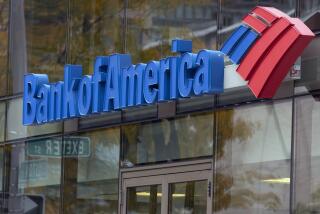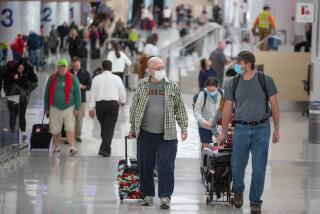Facebook outage is felt acutely by small-business owners

- Share via
During Facebook Inc.’s global outage Monday, online clothing boutique Exul recorded no sales for the first time since it opened in November.
“Every day counts, every penny counts for a small business,” owner Porsche Jones said.
Jones doesn’t have a large marketing budget, so she relies on Facebook and Instagram to target and communicate with potential customers. “As long as I’m active on social media, I’m producing some kind of value,” she explained. But when a technical issue kept Facebook’s social media properties, including Instagram and WhatsApp, offline for almost six hours, Jones couldn’t post pictures of new merchandise or news of a sale.
The disruption affected more than just Jones’ marketing. She also uses WhatsApp to communicate with her packaging suppliers, so she couldn’t place orders.
Now, with the whole network of services back up and running, Jones has to make up for lost time and she never wants to end up in a similar situation.
The global crash laid bare just how much of the world relies on Facebook’s services, leading to renewed criticism that the nearly $1-trillion company has too much power. Regulatory authorities in the U.S. and Europe seized the opportunity to focus on Facebook’s dominance and the “serious consequences” of dependency on one company for key communication channels, according to one German member of the European Parliament. But on the ground, the effects weren’t just esoteric.
The outage was a lesson on diversifying to other platforms, Jones said. She spent much of Monday on Twitter, learning how to use the app and working to grow her engagement. She is also planning to advertise on Pinterest, connect with clients over email, and even create in-person pop-up stores in her home city of Houston.
Former Facebook employee Frances Haugen testifies before a Senate panel that the social media giant chooses profits over users’ safety.
In Northern Alberta, Canada, small-business owner Carolyn Gerk was struggling with a similar marketing issue. Gerk runs Velvet Hand Designs, which sells ink and watercolor portraits, logos and prints online and has an Instagram storefront. “I live in a rural location, so in-person sales, markets, events can be very limiting. I need to be able to connect with people,” she said. Instagram is her main marketing tool.
Facebook and Instagram facilitate Gerk’s ability to communicate with other small-business owners. Given her remote location, Gerk said the ability to share advice and support online is essential. In the time that Facebook’s apps were down, she said, she felt a noticeable absence. “It was striking how quickly we had to become detached from one another for that short time.”
And, in the tangled, convoluted way that the modern world works, Gerk’s inability to sell her goods in Canada was also affecting women in Texas.
Gerk is part of a small nonprofit group called @truecrimecreatives that donates 15% of a week’s worth of sales to a charity once a month. This week, the group is raising money for an abortion rights organization in Texas called West Fund. “It’s discouraging to lose any of the advertising for that week,” she says.
Now, like Jones, Gerk is thinking about ways to expand to other services. She’s focused on increasing engagement on Twitter and ByteDance Ltd.’s TikTok.
Facebook shares gained 2.1% on Tuesday.







